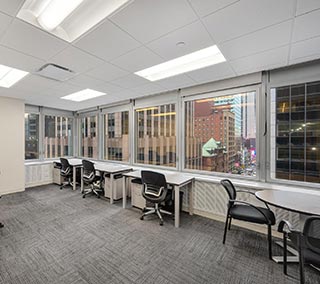As a Philadelphia business owner, it’s important to be aware of the taxes that you must pay annually. There are a variety of different taxes that may apply, depending on the type of business you own and the size of your operation. In this blog post, we will discuss the most common taxes that are levied on businesses in Philadelphia. We will also provide information on how to file for an extension if you need more time to pay your taxes, what happens if you don’t pay on time and more.
What Taxes Must My Philadelphia Business Pay?
The most common taxes that businesses in Philadelphia are required to pay are corporate income tax, sales tax, real estate tax and business license tax. Let’s take a closer look at each of these taxes:
- The Corporate Income Tax is levied on businesses that earn income in Philadelphia. The rate for this tax is currently set at 9.99 percent.
- The Sales Tax rate is 8 percent . It is a combination of state, county and city tax rates.
- The Real Estate Tax is levied on owners of real property in Philadelphia. The rate for this tax varies, depending on the location and type of property.
- Business License Tax is a tax that is levied on businesses in Philadelphia for the privilege of doing business in the city. The lifetime rate for this tax is currently set at around $300 per year.
About The BIRT Return
Each corporation, individual, sole proprietor, partnership, limited liability company or association engaging in a profession, business or other for-profit activity within Philadelphia must prepare and submit a Business Income and Receipts Tax Return, otherwise known as a BIRT, to the IRS. They include:
- People engaged in residential or commercial real estate rental activities.
- Estates, non-profits or trusts engaged in any for-profit activity of business inside of Philadelphia.
- People who have a Commercial Activity License (CAL) but don’t actively engage in business.
In all the scenarios described above, you typically must file a BIRT return, even if you didn’t make a profit.
Who pays these taxes?
Exactly who within these companies is responsible for paying these taxes is going to depend on how your business is structured. If you are a sole proprietor or single-member LLC, you will be responsible for personally paying all the business taxes yourself. If your business is structured as a corporation, then the corporate entity will be responsible for paying the taxes. For partnerships, S Corporations, C Corporations and LLCs, the partners and corporate entities are liable for any unpaid taxes.
Can You File an Extension?
If you own a business, you know things get incredibly busy and hectic. Also, tax filing for an organization can be a massive endeavor. If you need more time to pay your taxes, you can file for a tax extension with the Internal Revenue Service using form 4868. To get an extension, estimate your tax liability and fill out the form. Doing this gives you until October 15 to file your tax return and pay any taxes that are due.
What Will Happen if I Don’t Pay My Taxes on Time?
If you fail to pay your taxes on time, the state of Pennsylvania can assess penalties and interest on the amount that is owed. The penalty for late payment of corporate income tax is currently set at five percent of the amount due for every month you’re late.
Business Discounts and Exemptions
Business discounts and exemptions decrease the amount of BIRT owed to the City.
Income Tax Exemption
Starting with tax year 2016, businesses are entitled to an exemption of the first $100K in gross receipts and a proportionate share of their net income from the Business Income & Receipts Tax return. Here are few to consider.
Philadelphia Real Estate Tax Exemptions and Abatements
Philadelphia offers a number of exemption and abatement programs that can often reduce a property’s real estate tax bill if a business meets certain conditions. Tax exemptions offer tax relief to business owners by reducing their commercial property’s assessed value.
Tax abatements exempt all or part of an improvement for a set number of years. They can also reduce the amount of tax that is owed on a property by providing a credit against the real estate tax bill.
Abatements:
- Help retain Philadelphia residents and revitalize communities.
- Attract business owners to the City.
- Reduce development expenses for commercial projects.
To get a property tax abatement, You can apply for it at the Office of Property Assessment (OPA). The type of abatement you are getting can affect what you are required to submit by the office’s application process.
There are several different exemption and abatement programs available, so it’s important to explore all your options.
Tax Credits Available for Businesses in Philadelphia
There are a number of different tax credits that are available for businesses in Philadelphia. Some of these credits include the following:
Sustainable Business Tax Credit
It pays to go green in Philadelphia, and the Sustainable Business Tax Credit gives a credit of up to $15,000 for businesses that make a significant commitment to sustainable practices and human well-being. The credit is available for:
- Renewable energy systems like solar and wind power.
- Efficient lighting and heating/cooling systems.
- Water conservation measures.
- Pollution prevention measures.
You can claim this credit on your Business Income Tax (BIT) return. The Office of Sustainability reviews business applications and determines whether an organization meets eligibility criteria or not.
To learn more about the Sustainable Business Tax Credit read here:
Enterprise Zone Credit
The Enterprise Zone Credit is a credit of up to $500 per employee for businesses that create new jobs in an enterprise zone. The credit can be taken against the Business Income Tax (BIT) and the Net Profits Tax (NPT). Any private business with an investment that is situated within an enterprise zone is eligible. As far as funding goes, tax credits equal to 25 percent of the amount invested; up to $500,000 total tax credits a project.
You can learn more Enterprise Zone Credits here:
https://dced.pa.gov/programs/neighborhood-assistance-enterprise-zone-tax-credit-napezp/
Job Creation Tax Credit
The credit for new jobs is a credit that rewards businesses that create new jobs or increases the number of jobs in the city of Philadelphia or in Pennsylvania. The Job Creation Tax Credit awards businesses that increase jobs in the City or in the State of Pennsylvania.
A business firm can apply this credit its BIRT liability if it either generates 25 new professions or increases the number of personnel by at least 20 percent within five years of the start date that the program is initiated.
https://www.phila.gov/services/payments-assistance-taxes/tax-credits/job-creation-tax-credit/
These are just a few examples, so be sure to do your own research or speak to a tax professional to see if you’re eligible for any other credits.
Pennsylvania Economic Nexus Sales and Use Taxes
With the growth of internet sales, states were losing out on millions in potential revenue, so the economic nexus was incorporated to ensure that companies with a physical presence in the state, as well as entities with economic nexus, were subject to sales and use tax. The economic nexus requires companies to collect sales tax in states where their sales go over the state’s transactional or monetary threshold.
Economic presence is when a company has certain levels of economic activity in a state, which can trigger nexus for that state’s income tax. Economic presence, according to the Pennsylvania Department of Revenue, “is measured by sales threshold only. There is no transactional count requirement. Sales are the gross amount on all channels to include taxable and nontaxable sales.”
Philadelphia Economic Presence
For economic presence for tax years starting January 1, 2019 with the new amended legislation, a business is considered to have nexus in Philly and is subject to BIRT if it has generated $100,000 or less in gross receipts in the City during any 12 months in the year and has adequate nexus with Philly to establish it as a nexus under the United States Constitution
Philadelphia Active Presence
The City of Philadelphia defines active presence “as the purposeful, continuous and regular efforts in Philadelphia in the pursuit, profit or gain and the performance in Philadelphia of activities essential to those pursuits.” Starting in the tax year 2018 and going forward, Section 103 of the BIRT regulations established the criteria for the Business Income and Receipts Tax active presence test for businesses. The test makes clear when businesses engage in relevant activities that may qualify them for active presence treatment (i.e., the tax on gross receipts only).
Examples of Active Presence
The following are examples of activities that will qualify a business for the active presence standard:
“Having agents, representatives, independent contractors, brokers or others, acting on behalf of an out-of-Philadelphia business, own, rent, lease, use or maintain an office or other establishment in Philadelphia, when such establishment is used in the representation of the out-of-Philadelphia business in Philadelphia and is significantly associated with its ability to establish and maintain a market in Philadelphia.”
“Having employees own, rent, lease, use or maintain an office or in-home office or other establishments in Philadelphia, even if the business does not pay (directly or indirectly) for the use of the property.”
“Having independent contractors or representatives with in-home offices in Philadelphia, where the business reimburses the independent contractors or representatives only for the telephone or travel expenses.”
Can Businesses Be Excused from Paying BIRT Tax?
Only certain businesses and organizations are exempt from filing and paying the BIRT. A few of them include nonprofits, religious organizations, port-related activity and public utilities. The exclusions are based on the circumstances and facts of each organization. You can refer to the City’s Code and Revenue’s BIRT regulations to determine if your business is eligible for an exemption.
In addition, if your business has only been operating for two years, you may get an exemption from paying the BIRT through the Jump Start Philly program. If it’s only been operating for three years then you may be exempt from paying the BIRT through the Sustainable Jump Start program.
Why Not Save Real Estate Taxes with a Corporate Suite Office Rental?
As you can see, there are several different taxes and exemptions that are available to businesses in Philadelphia. Another way to save money on your taxes is to lease office space from a company like Corporate Suites. We offer serviced office space in some of the most prime locations in New York City, and our rates are very affordable. To learn more about what taxes your business must pay in Philadelphia while you are looking to lease real estate, please contact us today.
You can also explore our website to see all the different services we offer businesses of all sizes. To learn more, you can call 445-544-9310 to speak to one of our representatives.
Questions
How much does an extension cost?
You can print and mail Form 4868, and it doesn’t cost anything but the postage and envelope it takes to mail it.
What taxes do businesses pay in Pennsylvania?
The three most common taxes that businesses in Pennsylvania pay are the Corporate Income Tax, the Sales and Use Tax, and the Business Privilege/License Tax.
What taxes do individuals have to pay in Philadelphia?
The two most common taxes that individuals have to pay in Philadelphia are the Personal Income Tax and the School Property Tax.
Are there any tax credits available for businesses in Pennsylvania?
Yes, there are several different tax credits available for businesses in Pennsylvania. Some of these include the credit for new jobs, the credit for research and development, and the credits for rehabilitation of historic structures.
What taxes do I have to pay in Philadelphia?
In Philadelphia, businesses pay the Corporate Income Tax, the Sales and Use Tax, and the Business Privilege/License Tax.
Who Files a Philadelphia NPT?
The Philadelphia Net Profits Tax (NPT) applies to all businesses that have a net income from business operations in Philadelphia. This includes corporations, partnerships, limited liability companies and sole proprietorships.
What is the Philly non-resident wage tax 2020?
The Philadelphia Non-Resident Wage Tax (NRWT) applies to all individuals who work in Philadelphia, but do not reside in the city. The tax is based on the individual’s wages, and it is calculated at a rate of 0.105 percent of the individual’s wages.
What is the business privilege tax for Philadelphia?
The Philadelphia Business Privilege Tax (BPT) is a tax that applies to all businesses in the city, regardless of whether they have a physical presence or not. The tax is based on the business’s net income, and it is calculated at a rate of 0.275 percent of the business’s net income.
What about the costs for registering my business?
The state of Pennsylvania charges application and licensing fees for operating your business. This fee is separate from your taxes. There is also a renewal fee every year. The cost will vary due to your business structure.
What are the Philly Business Income & Receipts Tax instructions 2020?
The Philadelphia Business Income & Receipts Tax Return (BIRT) is a tax that applies to all businesses in the city, regardless of whether they have a physical presence or not. The tax is based on the business’s gross receipts, and it is calculated at a rate of 0.75 percent of the business’s gross receipts.
What are the Philly Corporate Income Tax instructions for the tax year 2020?
The Philadelphia Corporate Income Tax (CIT) is a tax that applies to all corporations in the city, regardless of whether they have a physical presence or not. The tax is based on the corporation’s net income, and it is calculated at a rate of 0.15 percent of the corporation’s net income.





